10 foods that boost immunity
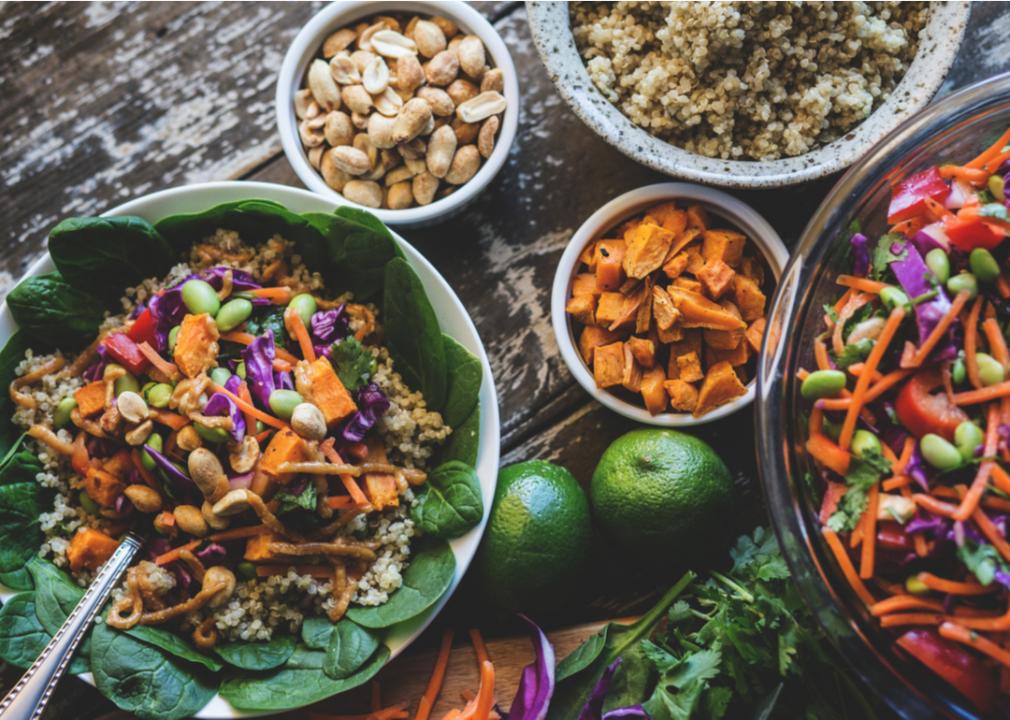
Megan Betteridge // Shutterstock
10 foods that boost immunity
If we are what we eat, then consuming nutritious foods is our surest way to maintain overall health.
With more than 700,000 COVID-19-related deaths in the U.S. reported by the Centers for Disease Control and Prevention, no other event to date has tested the capabilities of the immune system or called upon the importance of nutrition. According to the British Nutrition Foundation, recognizing key immune system-supporting nutrients and learning where to find them are two potent tools in maintaining a healthy lifestyle.
Lifestyle—diet in particular—directly affects the health of the immune system, and key nutrients play a major role in its proper functioning. Plant-based foods not only contain these key nutrients, but they also inadvertently support the immune system by reducing inflammation, decreasing the risk of cardiovascular disease, and even fighting cancer and Type 2 diabetes.
The main components of the immune system—cells, tissues, and organs—rely on nutritional choices to function as they should. When a foreign invader—or antigen—is identified, the immune system sends soldiers—antibodies—to fight it off. This is an immune response. The immune system remembers antigens, allowing antibodies to seek and destroy them quickly on the second, third, fourth, or more times around. This is immunity.
As flu season begins, already burdened by a pandemic, it’s more important than ever to support your immune system with curated nutrient-dependent decisions. Nutrition plays a key role in supporting your immune system, but medical professionals agree the best way to ensure a healthy and strong immune system is to pair a nutrient-rich diet with regular doctors visits and staying up-to-date on vaccinations.
Referencing research from scientific journals, including the American Journal of Lifestyle Medicine, the International Journal of Medicine and Medical Sciences, and the Food and Nutrition Bulletin, Thistle compiled a list of foods high in key nutrients that support the immune system, and they are highlighted below.
![]()
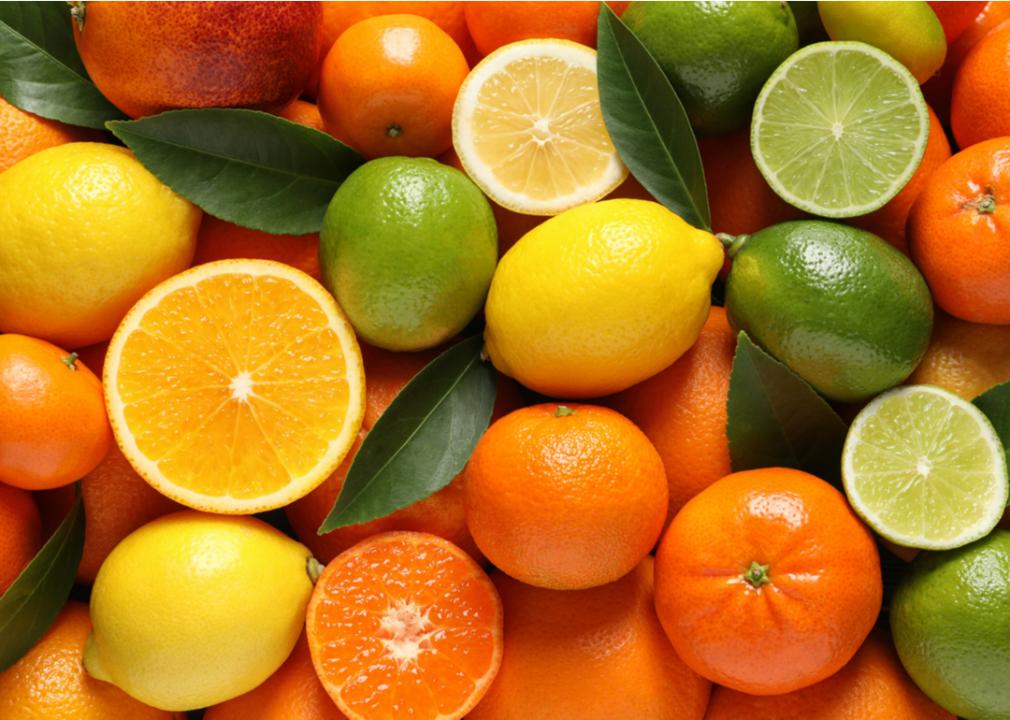
New Africa // Shutterstock
Citrus fruit
– Key nutrient: Vitamin C
The citrus family of fruits—including oranges, lemons, limes, and grapefruits—is an excellent source of immune system-supporting vitamin C. As a powerful antioxidant and cofactor in immune defense, vitamin C is integral in supporting both innate and adaptive immune systems. Vitamin C is also important for bodily systems that contribute to immune health such as repairing tissue, aiding in wound healing, fighting free radicals, and maintaining the health of bones, skin, and blood vessels.
The human body isn’t capable of producing vitamin C on its own and needs a hand from diet-derived sources. Citrus fruits are brimming with the nutrient, as are peppers, strawberries, broccoli, and Brussels sprouts.
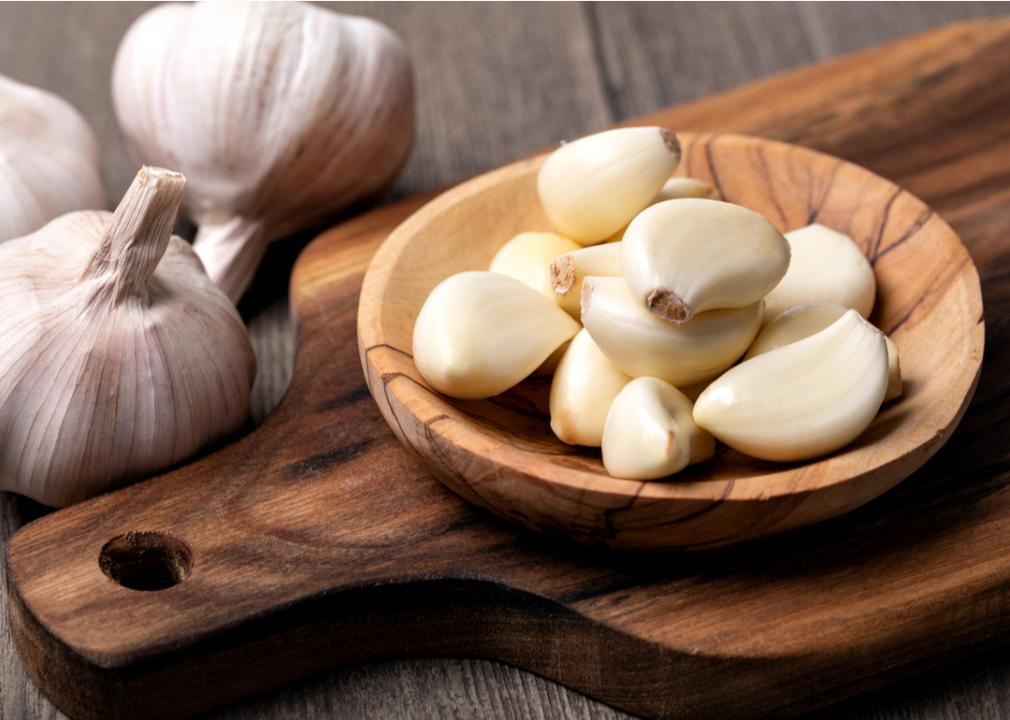
gresei // Shutterstock
Garlic
– Key nutrient: Allicin
Aromatic foods are not only delectable culinary additives, but they also contain potent compounds that, among other benefits, support immune health. Garlic is particularly effective due to a sulfuric compound called alliin. Upon being crushed, cut, or bit, alliin becomes allicin, the source of garlic’s pungent bouquet, as well as its immune system-supporting benefits.
Garlic is a parallel play type of immune support with natural antimicrobial activity and substantial concentrations of sulfur compounds, which are recognized as a powerful part of immune system maintenance. It’s also been found to have protective effects when confronted with conditions that harm the immune system such as cardiovascular disease, cancer, blood pressure conditions, and diabetes.
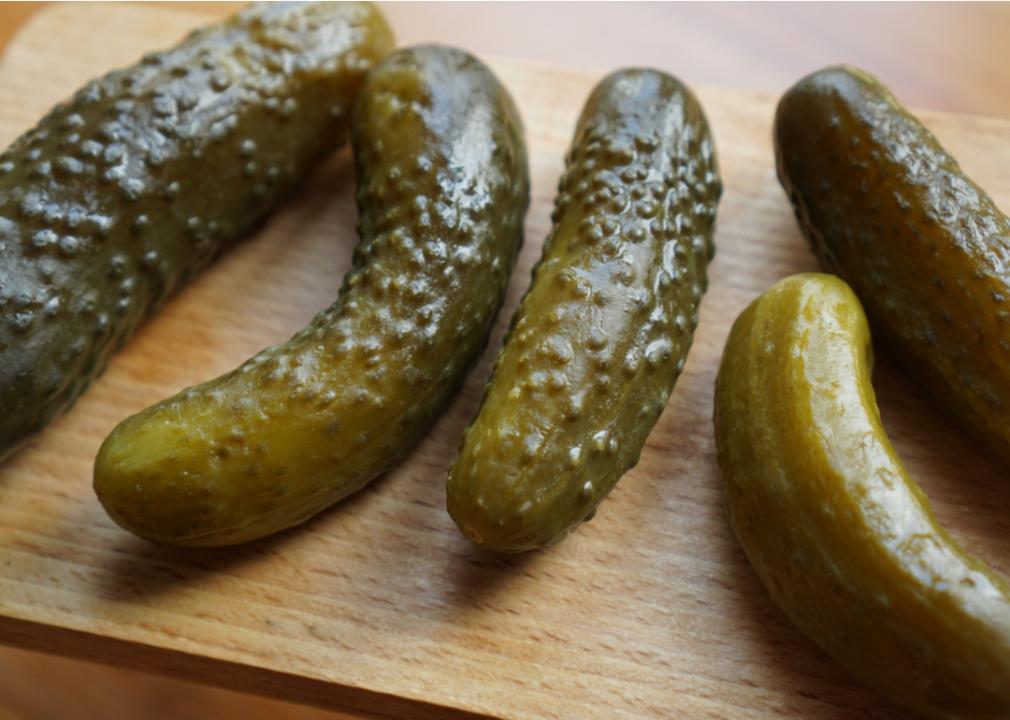
Pavel Savelev // Shutterstock
Fermented foods
– Key nutrient: Probiotics
Gut health affects more than just smooth digestion; it impacts the body as a whole. The delicate balance of healthy and harmful bacteria in the gastrointestinal tract is a determining factor of the stability and health of the immune system. Using probiotics—live microorganisms that create healthy gut microbiota—balances your gut’s ecosystem, nutritionally enhances your diet, and improves overall health—all factors that affect your immune system.
Naturally derived probiotics, which are named for their specific genus, species and strain, are found in several fermented plant-based foods. These foods include miso, natto, sauerkraut, pickles, and kimchi. Probiotic supplements are also a popular and effective option.
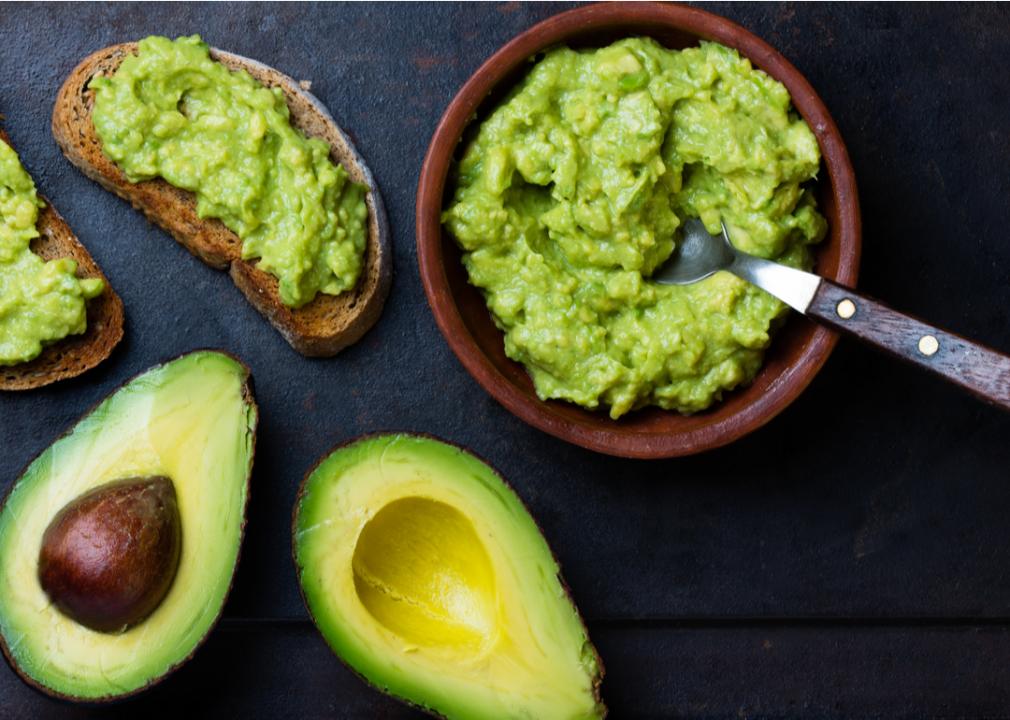
Larisa Blinova // Shutterstock
Avocados
– Key nutrient: Vitamin B6
If you’re looking for a reason to splurge on avocado toast, here’s a pretty good one: That delicious, nutrient-dense avocado is supporting your immune system. Vitamin B6, most notable for using and storing energy and creating red blood cells, is also necessary for immune system function by producing antibodies and cytokines.
One avocado contains around 4% of your daily value of vitamin B6 making this versatile food an excellent source of healthful benefits. In addition, that slice of avocado toast provides vitamin C, vitamin A, folate, copper, and zinc, all key nutrients for immune system support.
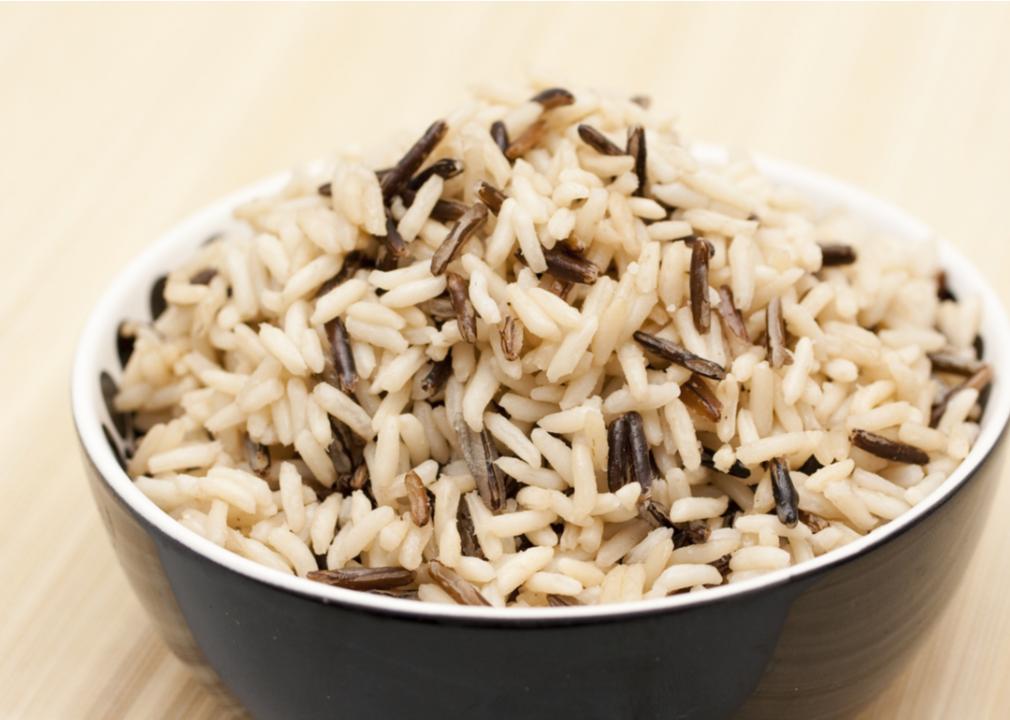
Shirinov // Shutterstock
Whole grains
– Key nutrient: Copper
Whole grains are an almost complete package of nutrients and one of the best plant-based sources of copper. Copper, an often forgotten nutrient, supports the immune system in two major ways: It helps immune cells produce energy and protects immune cells. Copper’s impact on the immune system is most clearly seen in cases of severe copper deficiencies, which manifest as impaired immune function.
Whole grains are fairly diversified and complementary to almost any palate, and even gluten-free diets as well. Even better, there’s really no superior option, simply those with differing levels of copper, such as buckwheat with around 100% of your daily value or wild rice, oats, and quinoa with closer to 20%.
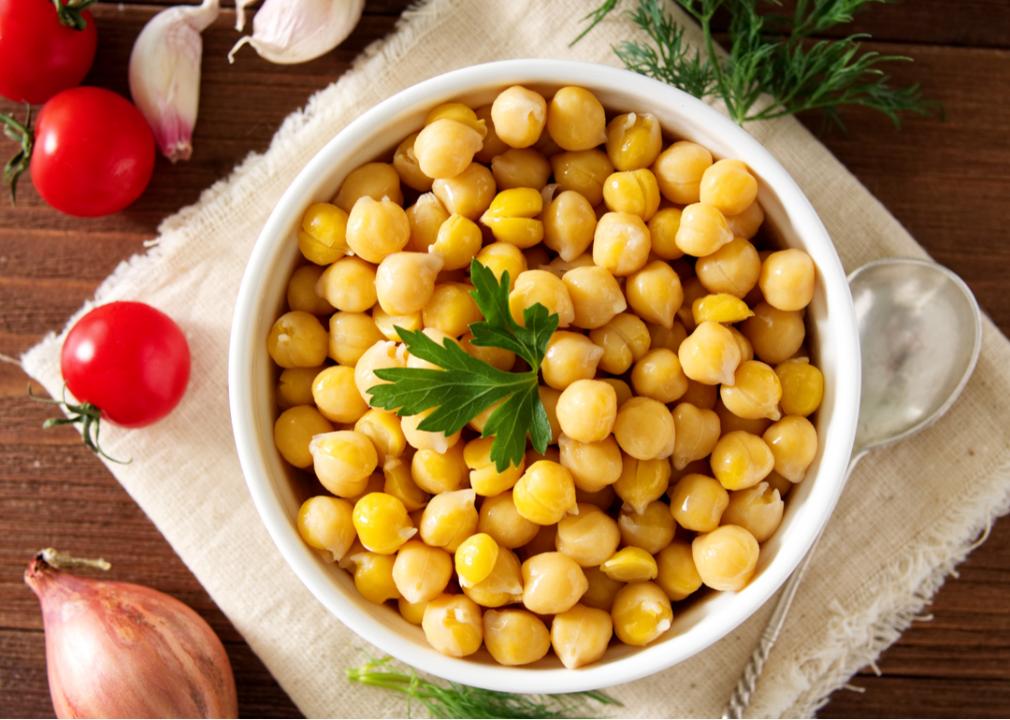
Nata Bene // Shutterstock
Legumes
– Key nutrient: Folate
Legumes top the list when it comes to nutrient-dense foods that support the immune system thanks to their folate content.
Folate, also called vitamin B9, is an important part of your body’s most intimate makeup—DNA and genetic material creation, dividing of cells, and protein synthesis. A folate deficiency affects the immune system by decreasing circulating T cells, which are cells that protect the body from infection, and blocking your body’s ability to fight infection.
Getting enough folate is an easy feat for anyone who loves legumes. Beans, peas, and lentils are loaded with folate and offer a great source of other immune health-supporting nutrients including B vitamins and copper. To add to the pot, legumes are an excellent source of fiber, which is necessary for a healthy gut and directly correlates to the stability of your immune system.
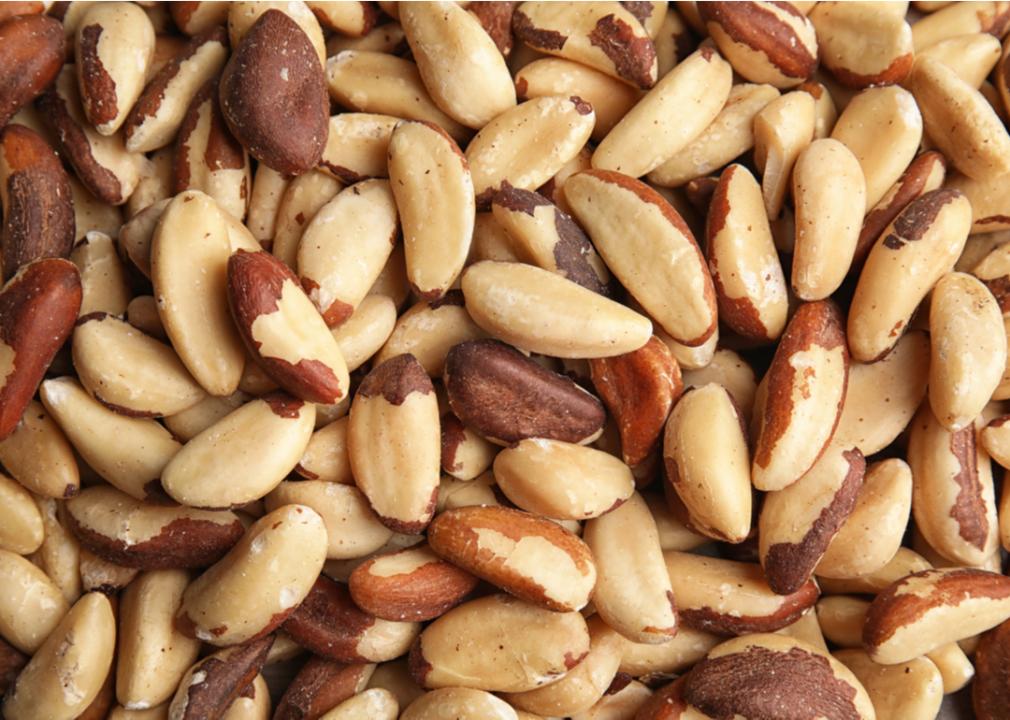
New Africa // Shutterstock
Brazil nuts
– Key nutrient: Selenium
Among the list of overlooked nutrients is selenium. As a trace element, the body doesn’t need much of the mineral, but those small amounts are essential for a healthy immune system. Selenium is part of the system that protects our bodies from oxidative damage and infection. Brazil nuts are the best plant-based source of selenium. One nut contains around 91 micrograms of this key nutrient, meaning that four or five nuts meet the higher end of the daily recommended allowance.
The Bertholletia excelsa tree in the Amazon jungle consumes inorganic forms of selenite and selenate from the soil, converts them into selenium, and deposits the mineral into the seeds called Brazil nuts. These decadent, creamy nuts are also rich in antioxidants, phenolics and flavonoids, all of which reduce inflammation that can reduce the risk of immune system-harming conditions.
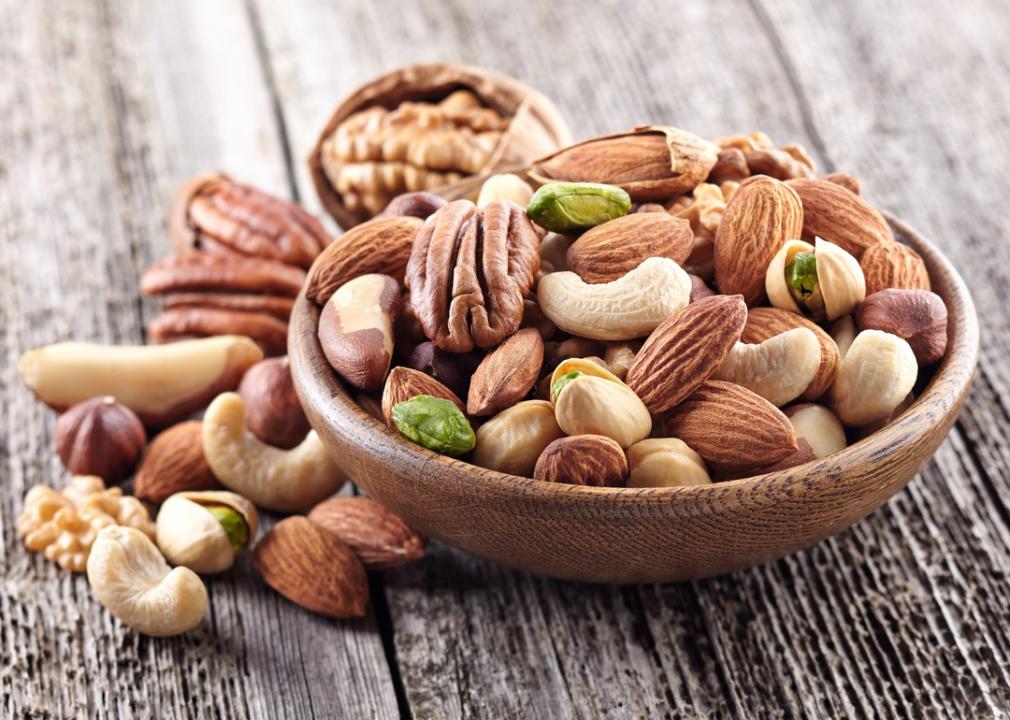
Dionisvera // Shutterstock
Nuts and seeds
– Key nutrient: Zinc
Nuts and seeds are nutrient-dense morsels that make an enriching addition to an immune system–supporting diet. They are rich in antioxidants, which help reduce inflammation; fiber, which feeds healthy gut bacteria; and the minerals copper and selenium, which are directly attributed to healthy immune system function.
Yet, most importantly, nuts and seeds are an excellent source of zinc, which helps the immune system respond to infections, aids natural killer cells, and fuels the development of T cells. A zinc deficiency lands a hard blow to immunity by negatively affecting antibody responses, cytokine production, and even reduces bone marrow–based T cell production.
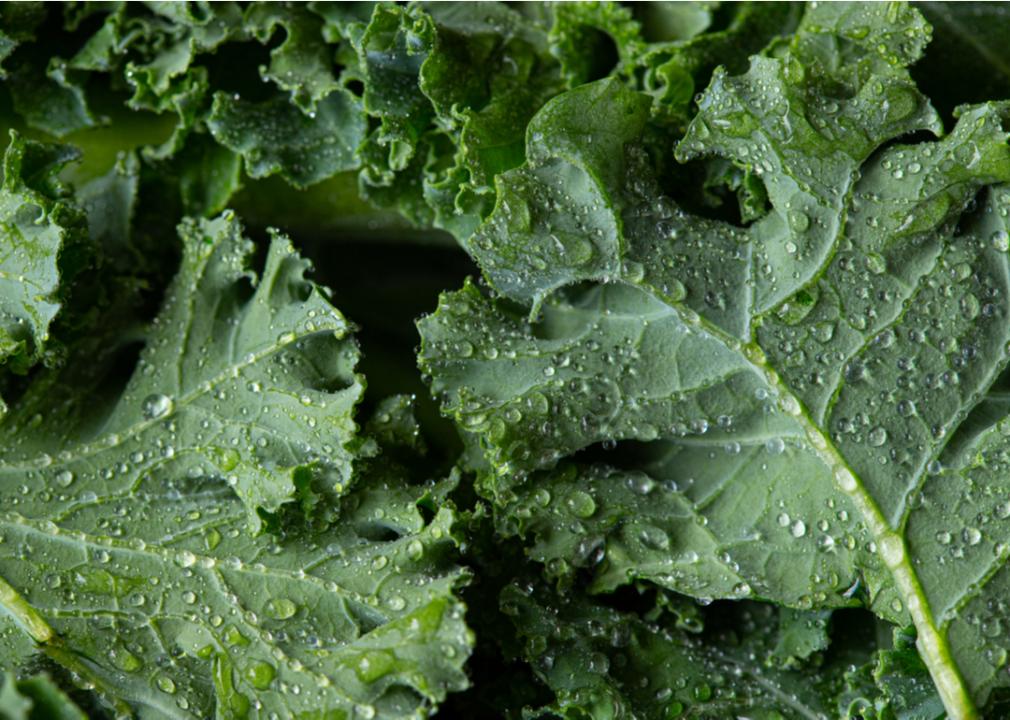
Imsosomg // Shutterstock
Leafy greens
– Key nutrient: Vitamin A
When it comes to greens, the darker the hue and more bitter the bite, the better for your immune system. These plants are rich in vitamin A, which is directly related to immune system health. Vitamin A is part of the signaling process for the reproduction of T cells and plays a key role in the balance of T helper cells, which help immune responses.
Most dark leafy greens are superfoods thanks to vitamins and minerals that help fight inflammation and add nutrient density to any meal. Both kale and spinach are the richest in vitamin A.
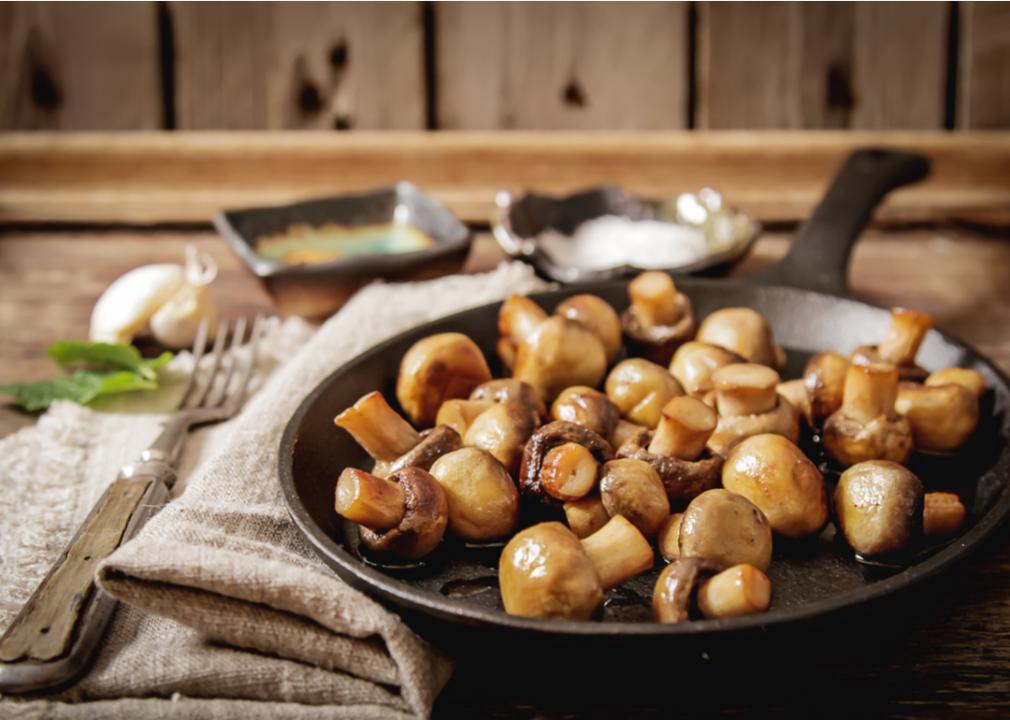
Gaus Alex // Shutterstock
Mushrooms
– Key nutrient: Vitamin D
Vitamin D, the sunshine vitamin aptly named for the synthesis that takes place when ultraviolet rays hit the skin, exploded into mainstream popularity during the coronavirus pandemic. Yet, vitamin D has always been known to play an important role in both immune system health and inflammatory responses.
Mushrooms are the only unfortified, plant-based food source of vitamin D. Even with that said, mushrooms have to be exposed to ultraviolet light during growth to contain levels of vitamin D helpful to the human body. Those richest in the vitamin are ultraviolet light-exposed raw crimini, brown, white, portabella, and maitake mushroom varieties. It’s important to note mushrooms alone don’t provide enough vitamin D, therefore additional supplementation is recommended.
This story originally appeared on Thistle and was produced and distributed in partnership with Stacker Studio.
